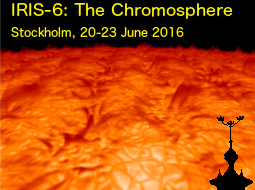Speaker
Takafumi Kaneko
(The University of Tokyo)
Description
We show that topological change of coronal magnetic field can trigger radiative
condensation for in-situ prominence formation by 3D MHD simulation including thermal
conduction and optically thin radiative cooling. The multi-wavelength observation by
SDO/AIA (Bergeret al., 2012) has found the process of in-situ prominence formation,
in which the cool dense plasma of prominence came from radiative condensation in the
corona without plasma injection from the chromosphere. In our previous study, we
have proposed a model for in-situ prominence formation and demonstrated it by 2D
simulation (Kaneko & Yokoyama, 2015). In our model, converging and shearing motions
are imposed at the footpoint of a coronal arcade, and a flux rope is formed through
the reconnection at the polarity inversion line (PIL). Inside the flux rope,
radiative cooling overwhelms background heating due to the dense coronal plasmas
levitated by magnetic field. The thermal imbalance can not be suppressed by thermal
conduction along the closed magnetic loops of the flux rope, leading to radiative
condensation. In our previous 2D simulation, the flux rope was approximated to be of
the infinite length, hence, thermal conduction was effective only along poloidal
magnetic field. In this case, radiative condensation is more likely to be triggered
due to absence of thermal conduction along toroidal magnetic field. In the present
study, we demonstrate that our prominence formation model does work in the case of
flux rope with a finite length. By imposing converging and shearing motion localized
along the PIL, the flux rope with a finite length is formed. When the length of flux
rope is sufficiently long, radiative condensation is triggered and prominence
(filament) is formed along PIL.
Author
Takafumi Kaneko
(The University of Tokyo)

